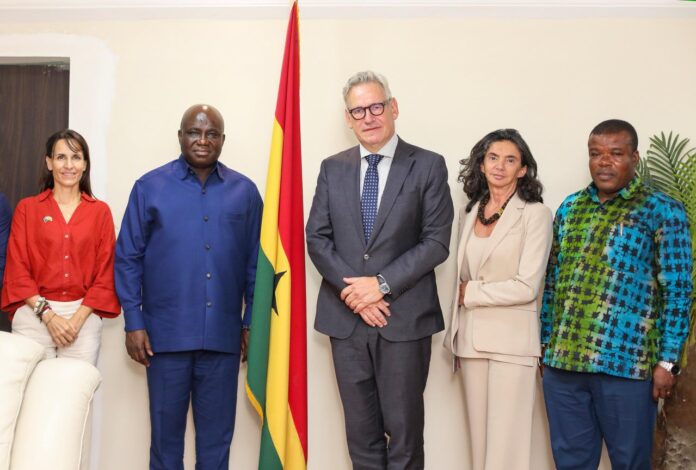The Government of Ghana’s renewed effort to revamp the poultry sector has received a significant boost following a joint donation of 150,000 birds from the Food and Agriculture Organization (FAO) and the European Union (EU) to support the Nkokonkitinkiti Programme.
The initiative, which aims to accelerate domestic poultry production and reduce Ghana’s reliance on imported chicken, was officially launched on 12 November.
It forms part of the government’s broader strategy to enhance food security, improve nutrition, and empower rural households with sustainable livelihood opportunities.
Receiving the donation on behalf of the government, the Minister for Food and Agriculture, Hon. Eric Opoku, expressed profound appreciation to the FAO and EU for what he described as a timely and strategic intervention.
He noted that the support aligns perfectly with the government’s vision to rebuild the poultry value chain and create income-generating avenues for vulnerable households.
According to the Ministry of Food and Agriculture, the birds will be distributed across selected districts under the first phase of the programme. The package includes technical assistance, feed support, and disease control measures to ensure optimal productivity and sustainability.
Officials say the programme is expected to directly benefit 55,000 households across the country. Beneficiaries will receive birds, cages, starter feed, and training in modern poultry management practices.
The intervention is projected to improve household nutrition, reduce poverty, and strengthen local economies.
Hon. Eric Opoku emphasized that the Nkokonkitinkiti initiative marks a new era in Ghana’s poultry development efforts.
He reiterated government’s commitment to ensuring transparency in distribution and effective monitoring to maximize impact.
He further stated that the support from the FAO and EU demonstrates the strong partnership between Ghana and the international community in advancing food security and agricultural resilience.
Stakeholders in the agriculture sector have welcomed the collaboration, expressing optimism that the programme will help reduce the country’s poultry import bill, expand local production capacity, and stimulate growth within the broader agricultural value chain.
With the donation now received and distribution underway, the Nkokonkitinkiti Programme is set to become one of the most transformative interventions in the poultry sector in recent years.








